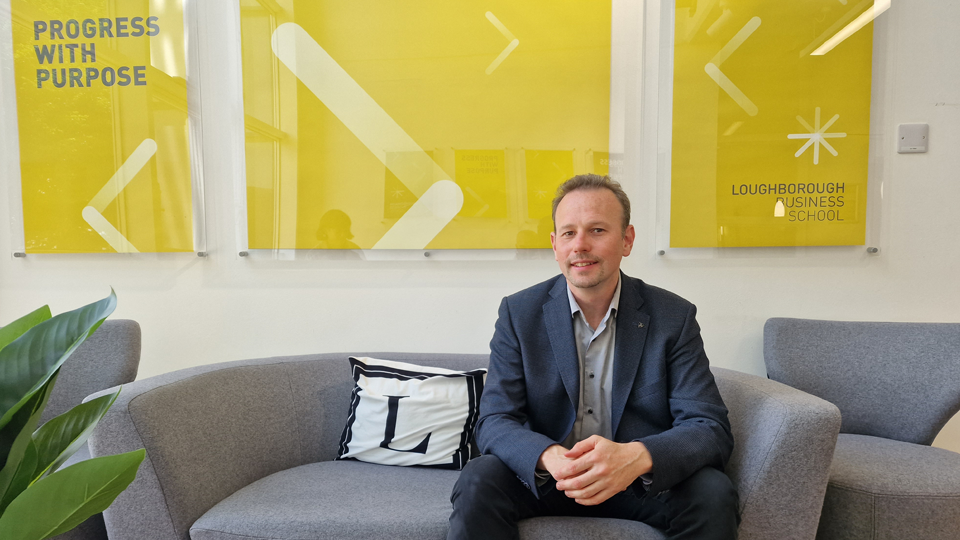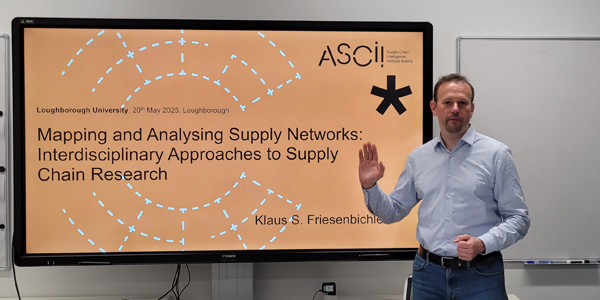Supply chains form the backbone of international trade and commerce, allowing organisations to export products and access raw materials from around the globe. This world-wide network of interconnected businesses plays an essential role in the productivity, sustainability and resilience of economies.
ASCII brings together supply chain management experts with macroeconomists and big data scientists to conduct high impact research that can inform economic policy, with a key focus on supply chains.
Dr Friesenbichler said: “The COVID-19 pandemic put a spotlight on long-standing vulnerabilities within global supply chains. While disruptions to supply chains were previously intermittent and quickly resolved, the crisis placed unprecedented strain on the availability of essential goods and services.”
“Supply chains have since been hit by successive shocks such as the war in Ukraine, Suez Canal blockage and further economic disruptions. Policymakers have struggled to address the full scope of these issues, turning first to supply chain management experts and then to macroeconomists in the hope of solving them.
“ASCII was formed in response to the challenges of this approach, the long-term underlying issues around supply chains can’t be solved in isolation, we need different disciplines working together with a shared purpose.”
ASCII was established under the leadership of Director Peter Klimek in early 2023. The Institute has received €10 million of funding over five years, collaborating with private businesses and international organisations as well as the Austrian government.
Recent publications from the Institute have already begun shaping the discourse, with research exploring food supply chain disruptions, management strategies for crisis adaptation, and broader economic implications.
Dr Friesenbichler emphasised the need for future-oriented supply chain strategies, particularly in the wake of shifting global trade dynamics: “As we see international trade blocs evolving in the wake of the new tariff policies emerging from the US, the UK must redefine its position in this landscape.
“It is essential for the UK to ensure continued access to critical technologies and raw materials vital for economic growth. Sustainability and resilience must also remain at the forefront of industry decision-making, balancing cost efficiency with long-term stability.
“With the global conversation on manufacturing often revolving around the negatives of moving production abroad, it’s important to remember that a significant barrier to reshoring manufacturing is labour capacity and expertise. Economies such as the US are already operating at near full employment, which raises the question of worker availability, alongside the time and investment needed to reskill and upskill people.
“Addressing the need for better understanding and the next generation of skilled workers is where institutions like the UK SCALE Centre and ASCII play a vital role. By fostering interdisciplinary knowledge, policymakers and industry leaders can better understand the capabilities required to build sustainable supply networks.”
During his visit, Dr Friesenbichler expressed enthusiasm for deeper collaboration between ASCII and the UK SCALE Centre. “We are always looking to partner with others to develop timely, relevant and impactful research.”
Professor Jan Godsell, Dean of Loughborough Business School and Professor of Operations and Supply Chain Strategy, added: “Supply chains are an essential facet of both global business and our everyday lives, but it’s often not until something goes wrong that we take the time to consider their impact. With the creation of the UK SCALE Centre, we want to develop a forward-thinking approach to building sustainable, resilient and productive supply chains.
“To tackle the big challenges facing people, businesses and our planet, we need to foster collaboration and interdisciplinary cooperation. That’s why we were delighted to welcome a speaker of Dr Friesenbichler’s reputation to join us for the day and share his invaluable insights.”
To learn more about Loughborough University’s supply chain expertise, teaching and research, visit our UK SCALE Centre microsite.

